Jerome Delli Priscoli, Aaron T. Wolf0521632161, 9780521632164
Table of contents :
Cover……Page 1
Half-title……Page 3
Series-title……Page 5
Title……Page 7
Copyright……Page 8
Contents……Page 11
Figures……Page 13
Tables……Page 15
Sidebars……Page 16
Foreword……Page 17
Acknowledgments……Page 19
Special Contributors……Page 21
Introduction……Page 23
A Note on the OSU Transboundary Freshwater Dispute Database……Page 27
1.1 CONFLICT MANAGEMENT, PUBLIC PARTICIPATION, AND WATER MANAGEMENT……Page 29
1.2 SOME TRENDS PUSHING TOWARD COOPERATION……Page 31
EXPANDING OF ISSUES AND OF STAKEHOLDER NUMBER AND ASYMMETRY……Page 32
GROWING WATER INTERDEPENDENCE WITH WEAK COMPLIANCE AND INCENTIVE SYSTEMS……Page 33
DEVELOPMENT OF WATER RESOURCES MANAGEMENT AS A MEANS TO BROAD AGREEMENTS……Page 34
GROWING NEED FOR BALANCE AMONG DEVELOPMENT, GROWTH, DEMAND MANAGEMENT, AND STRUCTURAL INVESTMENTS……Page 35
1.2.2 The world of the professional water manger is changing……Page 36
2 Water wars, water reality: Reframing the debate on transboundary water disputes, hydropolitics, and preventive hydrodiplomacy……Page 37
2.1 WHY IS THE WATER WAR ARGUMENT SO COMPELLING?……Page 38
2.1.1 Hydromyth I: “Water wars” are prevalent and inevitable……Page 40
TENSIONS AND TIME LAGS: CAUSES FOR CONCERN……Page 42
REGIONAL INSTABILITY: POLITICAL DYNAMICS OF LOSS OF IRRIGATION WATER……Page 44
Political divisions……Page 45
National water ethos……Page 46
2.1.3 Hydromyth III: Political tensions are caused by water scarcity……Page 47
2.1.4 Basins at risk: Water on the horizon……Page 48
Strategic argument……Page 49
Institutional resiliency argument……Page 50
Economic argument?……Page 51
SUMMARY OF GLOBAL STUDIES……Page 52
MULTISCALAR STUDIES AND INSTITUTIONAL CAPACITY……Page 55
2.2 PREVENTIVE DIPLOMACY……Page 56
2.3 REFRAMING THE DEBATE: WATER SHARING AND POLITICAL VULNERABILITY……Page 57
2.4 POLITICS AND HYDROCOOPERATION……Page 58
3.1.1 The principles……Page 61
3.1.2 High politics and low politics……Page 62
3.2.1 The unassisted setting……Page 63
3.2.2 The assisted setting……Page 64
3.3 DIAGNOSING CAUSES OF CONFLICT……Page 65
3.4 GENERATING VALUE- AND INTEREST-BASED ALTERNATIVES IN WATER DISPUTES……Page 66
3.5 INCENTIVES AND SHARED INTERESTS……Page 67
3.6.1 Central planning versus market approaches……Page 69
3.6.2 Game theory……Page 70
3.7.1 Beyond zero-sum: Overview of the continuum of procedures……Page 71
3.7.2 Process techniques: BATNA, STN, and interest-based bargaining……Page 75
3.8 BUILDING INSTITUTIONAL CAPACITY FOR CONFLICT RESOLUTION……Page 76
4.2 INTERNATIONAL INSTITUTIONS AND DECLARATIONS……Page 78
4.3 DEVELOPMENTS IN INTERNATIONAL TRANSBOUNDARY WATER: CONTRIBUTIONS FROM THE INTERNATIONAL COMMUNITY……Page 80
4.3.1 Conventions, declarations, and organizational developments……Page 81
INTERNATIONAL LAW……Page 83
UN CONVENTION……Page 84
EXTREME PRINCIPLES……Page 86
MODERATED PRINCIPLES……Page 87
4.4 INTERNATIONAL WATER TREATIES: PRACTICE……Page 89
4.4.1 International water treaties: Allocations/quantity……Page 92
4.4.3 International water treaties: Groundwater……Page 93
4.4.4 Negotiation process: From rights to needs to benefits to equity……Page 97
4.5 RELATIVE HYDROGRAPHY VERSUS CHRONOLOGY OF USE……Page 98
4.5.2 Prior uses……Page 99
4.5.3 Upstream–downstream relations……Page 100
4.5.5 The unique local setting……Page 101
4.6.1 Beneficial uses……Page 102
ENERGY RESOURCES……Page 103
DATA AND TECHNOLOGY……Page 105
4.7 LESSONS FOR THE INTERNATIONAL COMMUNITY……Page 106
SUMMARY……Page 108
5 Public participation, institutional capacity, and river basin organizations for managing conflict……Page 110
5.1 PUBLIC PARTICIPATION IN WATER RESOURCES……Page 111
5.2 WATER INSTITUTIONS AND CONFLICT……Page 114
5.2.1 Institutional barriers to conflict resolution……Page 116
5.3 PRACTICE OF TRANSBOUNDARY INSTITUTION BUILDING……Page 118
5.3.1 The international experience……Page 119
5.3.2 The intranational experience……Page 120
6.1 FOUR STAGES IN WATER CONFLICT TRANSFORMATION……Page 125
6.1.1 Stage I. Assess the current setting: Basins with boundaries……Page 126
6.1.3 Stage III. Enhancing benefits: Beyond the river……Page 129
6.1.4 Stage IV. Putting it all together: Institutional and……Page 130
6.1.5 Analytic framework……Page 131
BOUNDARY WATERS AGREEMENT BETWEEN CANADA AND THE UNITED STATES……Page 132
NILE RIVER BASIN……Page 133
Law and enforcement……Page 134
ANTICIPATING CONFLICT AND ACTIVE INVOLVEMENT IN ADVANCE OF CONFLICT……Page 135
“Dis-integrating” control of water resources……Page 136
OFTEN-IGNORED PHYSICAL PARAMETERS……Page 137
Water quality and minimum flow requirements……Page 138
6.3.3 Lessons learned: Stage III: Enhancing benefits……Page 139
Successful institutions……Page 140
Financing……Page 141
POLITICAL PARAMETERS……Page 142
Enforcement mechanisms……Page 143
7.1.2 Globalization: Private capital, WTO, and circumvented ethics……Page 144
7.1.3 The geopolitics of desalination……Page 145
7.2.1 Funding and development agencies……Page 146
7.2.3 Universities and research agencies……Page 147
7.2.5 Civil society……Page 148
7.3 A NEW ETHIC FOR WATER MANAGEMENT……Page 149
A.1 CONVENTION ON THE LAW OF THE NON-NAVIGATIONAL USES OF INTERNATIONAL WATERCOURSES. ADOPTED BY THE GENERAL ASSEMBLY OF THE UNITED NATIONS ON 21 MAY 19971……Page 151
A.2 TEXT OF THE DRAFT ARTICLES ON THE LAW OF TRANSBOUNDARY AQUIFERS ADOPTED BY THE COMMISSION ON FIRST READING……Page 159
B.1.1 The United States……Page 163
SINGLE FEDERAL ADMINISTRATOR: (1) THE COLORADO AND DEPARTMENT OF THE INTERIOR (COLORADO LAW OF THE RIVER)……Page 164
SINGLE FEDERAL ADMINISTRATOR-VARIATION: THE COLUMBIA RIVER TREATY ORGANIZATION……Page 167
COMPREHENSIVE REGIONAL AUTHORITY: THE TVA……Page 169
INTERAGENCY–INTERSTATE COMMISSIONS: (TITLE II)……Page 170
POTOMAC RIVER (INTERSTATE COMPACT COMMISSION)……Page 172
B.1.2 Some Canadian experiences……Page 173
B.2.1 France……Page 174
B.2.3 The Netherlands……Page 175
B.2.6 Spain……Page 177
B.2.7 Russia……Page 178
B.3 AFRICA……Page 179
B.3.1 Nigeria……Page 181
B.3.2 An Example: River Basin Management in the Komadugu–Yobe RBDA……Page 182
B.4 ASIA……Page 183
B.4.1 Vietnam and Mekong……Page 184
B.4.2 China……Page 185
B.4.3 The Yellow River example……Page 186
B.5.1 Brazil……Page 187
B.5.2 Mexico……Page 190
B.5.3 Lerma Chapala example……Page 191
B.6.1 The Murray–Darling basin……Page 193
B.6.2 The heart of the Murray–Darling organizations: participatory processes……Page 195
C Case studies of transboundary dispute resolution……Page 197
C.1.2 Background……Page 200
C.1.5 Outcome……Page 201
C.1.8 Time line……Page 202
C.2.3 The problem……Page 203
C.2.4 Attempts at conflict management……Page 204
C.2.5 Outcome……Page 205
C.3.1 Case summary……Page 209
C.3.3 The problem……Page 210
C.3.4 Attempts at conflict management……Page 211
C.3.5 Outcome……Page 212
C.3.8 Time line……Page 214
C.4.4 Attempts at conflict management……Page 215
C.4.5 Outcome……Page 216
C.4.8 Time line……Page 217
C.5.1 Case summary……Page 218
C.5.4 Attempts at conflict management……Page 219
C.5.5 Outcome……Page 221
C.5.8 Time line……Page 222
C.6.3 The problem……Page 224
C.6.5 Outcome……Page 225
C.7.1 Case summary……Page 226
C.7.3 The problem……Page 227
C.7.4 Attempts at conflict management……Page 228
C.7.6 Negotiations over the Yarmuk River……Page 229
C.7.7 Lessons learned……Page 230
C.7.9 Time line……Page 231
C.7.10 Negotiations over the Yarmuk……Page 232
C.8.3 The problem……Page 233
C.8.4 Attempts at conflict management……Page 234
C.9.1 Case summary……Page 235
C.9.2 Background……Page 236
C.9.3 The problem……Page 237
C.9.8 Time line……Page 238
C.10.2 Background……Page 239
C.10.4 Attempts at conflict management……Page 240
C.10.6 Lessons learned……Page 241
C.11.3 The problem……Page 242
C.11.5 Outcome……Page 243
C.12.1 Case summary……Page 244
C.12.2 Background……Page 245
C.12.4 Attempts at conflict management……Page 246
C.12.5 Outcome……Page 248
C.12.8 Time line……Page 250
C.13.3 The problem……Page 251
C.13.4 Attempts at conflict management……Page 252
REGIONAL COOPERATION AND MANAGEMENT……Page 255
C.13.7 Lessons learned……Page 257
C.13.9 Time line……Page 258
C.14.2 Background……Page 259
SUDANESE POSITION……Page 261
C.14.5 Outcome……Page 262
C.14.8 Time line……Page 263
C.15.2 Background……Page 264
C.15.4 Attempts at conflict management……Page 265
C.15.8 Time line……Page 266
C.16.2 Background……Page 267
C.16.3 The problem……Page 268
C.16.4 Attempts at conflict management……Page 269
C.16.7 Creative outcomes from resolution process……Page 270
C.17.2 Background……Page 271
C.17.4 Attempts at conflict management……Page 272
C.17.8 Time line……Page 273
C.18.2 Background……Page 274
C.18.4 Attempts at conflict management……Page 275
C.18.8 Time line……Page 276
D.4 GLOBALIZATION, PRIVATIZATION, AND COMMODIFICATION OF WATER……Page 277
D.6 WATER AS A HUMAN RIGHT……Page 278
D.8 FULL COST RECOVERY……Page 279
D.10.1 Historical cases……Page 280
D.10.2 Modern cases……Page 284
E Treaties with groundwater provisions……Page 294
F Treaties with water quality provisions……Page 302
G Treaties that delineate water allocations……Page 336
Bibliography……Page 347
Author Index……Page 363
Subject Index……Page 369
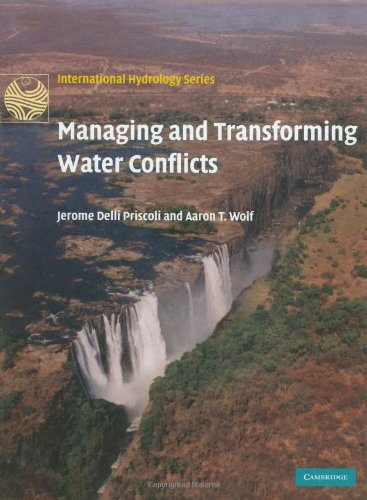
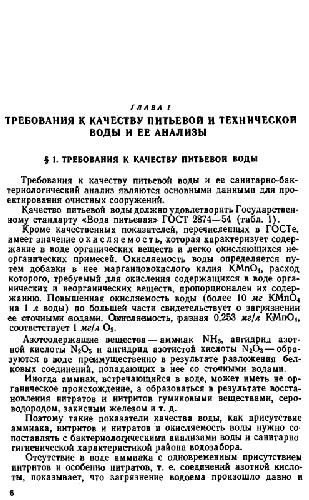

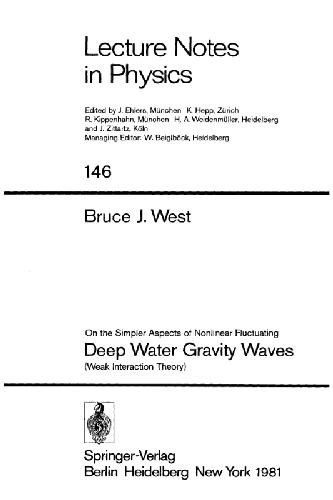
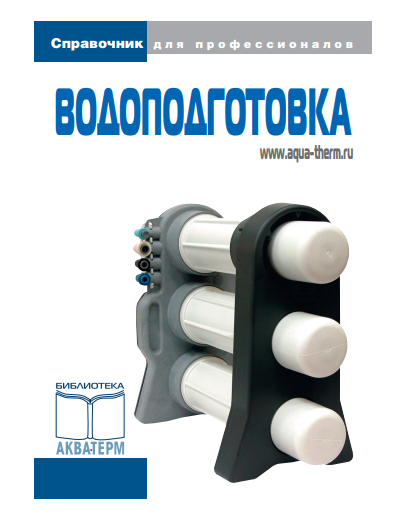
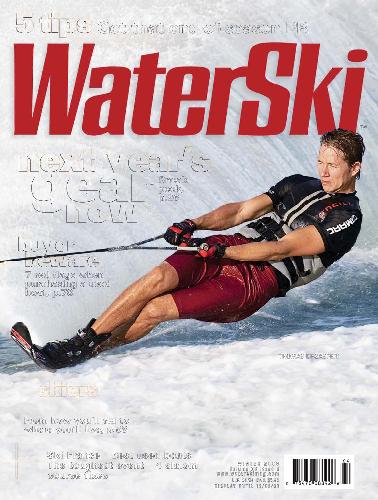

Reviews
There are no reviews yet.